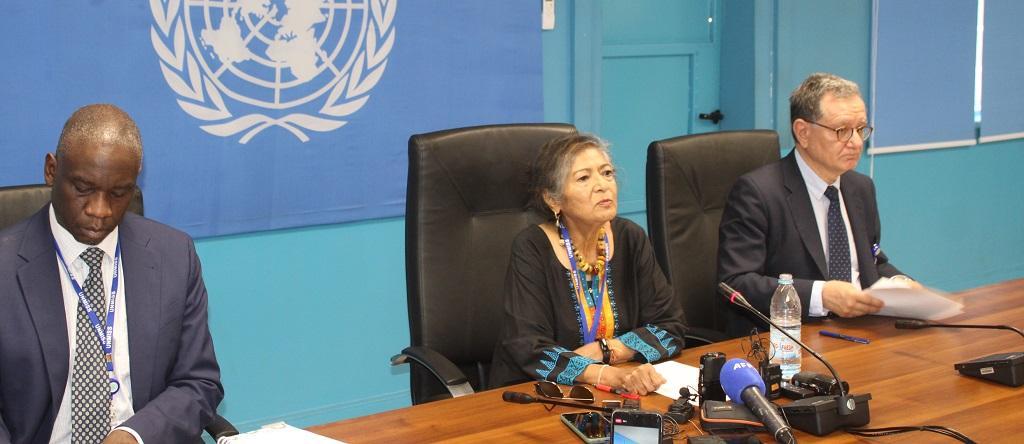Africa-Press – South-Sudan. United Nations experts on Tuesday strongly condemned the aerial bombing of a Médecins Sans Frontières (MSF) hospital in Old Fangak town, Jonglei State, South Sudan, saying the attack constitutes “a flagrant war crime” amid rising ethnic tensions.
Early on Saturday, a South Sudan army helicopter and a drone targeted the town, located in Fangak County, for several hours. The attack killed seven civilians, including a woman and a child, and destroyed the MSF Hospital.
The hospital, the only major medical facility in the area, also known as Gezira, served at least 40,000 people. Its destruction, along with its pharmacy, has cut off tens of thousands of civilians from critical, life-saving healthcare.
“This was not a tragic accident. It was a calculated, unlawful attack on a protected medical facility. The aerial bombing of the MSF hospital in Old Fangak is a flagrant violation of international humanitarian law and could amount to a war crime,” said Yasmin Sooka, Chair of the UN Commission on Human Rights in South Sudan.
“Targeting medical facilities and services violates the Geneva Conventions and represents a direct assault on the foundations of humanitarian action that are intended to protect civilians in conflict zones. Those responsible must be identified, investigated, and held accountable without delay,” she added.
Fangak County is controlled by the main armed opposition Sudan People’s Liberation Army in Opposition (SPLA-IO) led by First Vice President Riek Machar, who is currently under detention in Juba.
However, Old Fangak town, the site of the deadly bombing, has no military facilities or bases. It is located 45 kilometers to the southwest of the county headquarters, Phom, and around 200 kilometers to the north of the state capital Bor.
The attack followed the government’s division of the sixteen counties of the Nuer community into “hostile” and “friendly” categories, with Fangak County being identified as “hostile” along with eight other counties.
It also followed warnings of attacks by the South Sudan People’s Defense Forces (SSPDF), the government’s army, after allegations that the SPLA-IO had hijacked ferries belonging to humanitarian organizations.
Commissioner Barney Afako, a member of the UN commission, suggested the attack was not an isolated incident, pointing to comments of ethnic profiling by senior government officials in Juba.
“This strike does not seem to be an isolated incident—it occurred in the context of escalating ethnic profiling, unlawful detentions, and a hardening of positions within the political and military elite,” Commissioner Afako said, warning that the “hostile” designation of Fangak could incite reprisals and collective punishment.
Commissioner Carlos Castresana described the attack as “inhumane” and called for the protection of health facilities during armed conflicts, warning of a growing impunity and disregard for human life.
“The targeting of medical facilities is not only unlawful – it is inhumane,” said Commissioner Carlos Castresana Fernández. “Hospitals must be protected spaces, not battlegrounds. What happened in Old Fangak is symptomatic of a growing impunity and disregard for human life that must be urgently addressed.”
The UN Commission highlighted that the bombing is part of a broader pattern of escalating violence that threatens South Sudan’s fragile peace process. Repeated violations of the cessation of hostilities and the targeting of civilians and humanitarian infrastructure are pushing the country towards further conflict.
“The path South Sudan is currently on is perilous,” warned Commissioner Sooka. “If attacks like these continue with impunity, the Peace Agreement risks becoming meaningless. The African Union, IGAD, and the international community must respond decisively to prevent further bloodshed.”
The Commission urged the African Union Commission (AUC) and the Intergovernmental Authority on Development (IGAD) to press for the protection of civilians and accountability, calling on all parties to return to political dialogue to salvage the peace process.
For More News And Analysis About South-Sudan Follow Africa-Press






